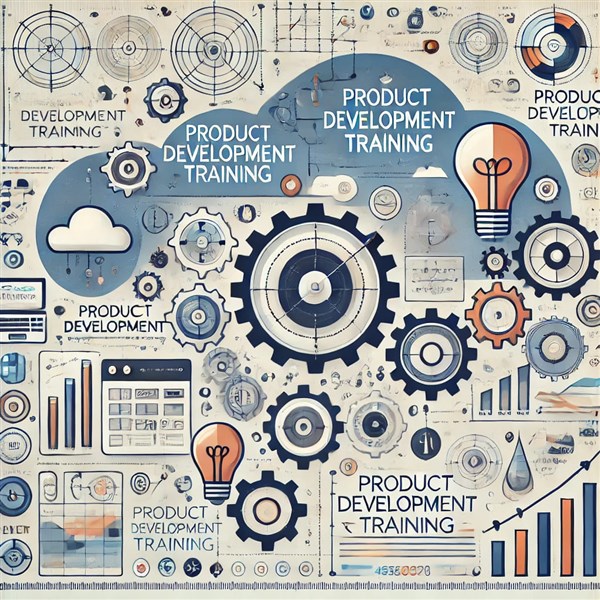Unable to find what you're searching for?
We're here to help you find it
Product development is more than just creating new items—it's about solving real problems, meeting customer needs, and staying competitive in an ever-evolving marketplace. In today’s fast-paced economy, businesses across all sectors must innovate quickly and efficiently. This is where product development training becomes a key strategic advantage.
Organizations that invest in product development training empower their teams to:
But which industries stand to gain the most from such training? In this blog, we’ll explore the top industries that benefit from product development training, and why this kind of learning is essential to their success.
It’s no surprise that the tech and software industry sits at the top of the list. With new tools, platforms, and competitors emerging daily, companies must be agile and forward-thinking. Product development training in this sector often includes:
Why it matters: Tech teams benefit from structured approaches that reduce scope creep, enhance user feedback loops, and accelerate development cycles.
Example: Startups and SaaS companies often use product development frameworks like Lean Startup or Design Thinking to pivot quickly and reduce failure rates.
The manufacturing sector thrives on efficiency, precision, and innovation. Product development training in this space involves:
Why it matters: Engineers and designers need the skills to create cost-effective, scalable, and functional products that meet stringent industry and regulatory requirements.
Example: Automotive manufacturers use robust product development pipelines to launch new vehicle models every few years while managing cost, safety, and compliance.
The healthcare and medical technology industry faces high stakes: patient safety, compliance, and rapid innovation. Product development training includes:
Why it matters: Developing medical products requires multidisciplinary collaboration between clinicians, designers, and engineers—something that training programs are designed to foster.
Example: A medical device company can shorten product launch cycles and improve outcomes by training teams in agile development and risk management frameworks.
Retailers and consumer goods companies need to predict trends, respond to consumer feedback, and innovate product lines rapidly. Product development training here focuses on:
Why it matters: A well-trained team can reduce the risk of product flops, optimize inventory, and ensure brand loyalty through better product design and launches.
Example: CPG companies like Unilever or P&G rely on consumer insight-driven product development to maintain market share and customer trust.
The food and agritech sectors are evolving with new expectations around sustainability, health, and efficiency. Product development training covers:
Why it matters: Innovations in this field need to be safe, scalable, and consumer-friendly. Training helps align R&D with consumer trends and production constraints.
Example: A plant-based startup may need to test dozens of formulations, requiring deep understanding of sensory testing and product iteration methodologies.
In the creative industries, product development training might not seem obvious—but it plays a crucial role in:
Why it matters: Modern media products require constant iteration, cross-functional creativity, and platform adaptability, which structured training helps enable.
Example: A video game studio can train teams in agile development and beta testing to create more engaging, bug-free products.
Even service-based industries benefit from product development training, especially when developing:
Why it matters: Structured product development helps consultants and professional firms deliver scalable, repeatable value to clients.
Example: A management consulting firm might design a proprietary SaaS tool to automate client assessments—requiring both tech and product design fluency.
The renewable energy and cleantech sectors require ongoing product innovation, from solar panel designs to battery storage systems. Training helps teams:
Why it matters: Sustainable solutions must be both technically viable and environmentally sound—a balance best achieved through cross-disciplinary product development training.
Example: Energy startups leverage training to improve the speed and reliability of clean technology rollouts, staying ahead of regulatory demands.
🧠 Conclusion: Product Development Training Is Industry-Agnostic, but Mission-Critical
No matter your field, one truth remains: innovation doesn’t happen by accident. It requires process, discipline, creativity, and collaboration—all of which are cultivated through product development training.
From high-tech startups to global manufacturers, from health-tech disruptors to sustainable brands, product development training helps organizations:
If you’re part of an organization looking to stay ahead of the curve, investing in product development training is no longer optional—it’s essential.
✅ Want Help Getting Started?
We can help your team implement effective product development strategies, tools, and training programs. Whether you're in tech, manufacturing, healthcare, or retail, we’ll tailor a solution that drives innovation from idea to execution.
At Koenig Solutions, a leading IT training company, we provide top-notch product development training courses that equip professionals with the skills and knowledge needed to excel in their industries. Whether you're looking to enhance your skills or take your company to the next level, we have the right course for you.

Aarav Goel has top education industry knowledge with 4 years of experience. Being a passionate blogger also does blogging on the technology niche.










